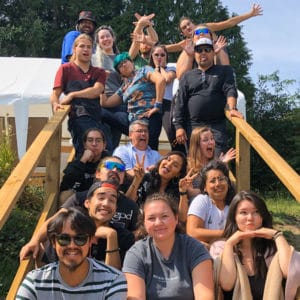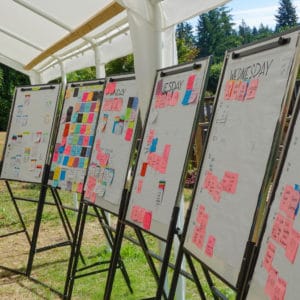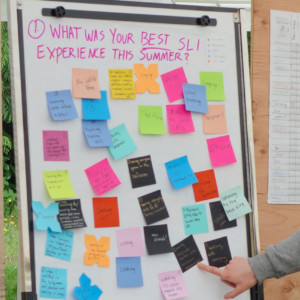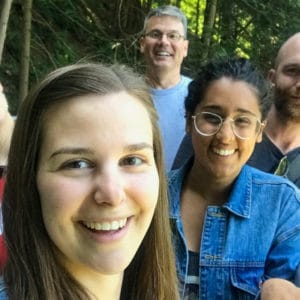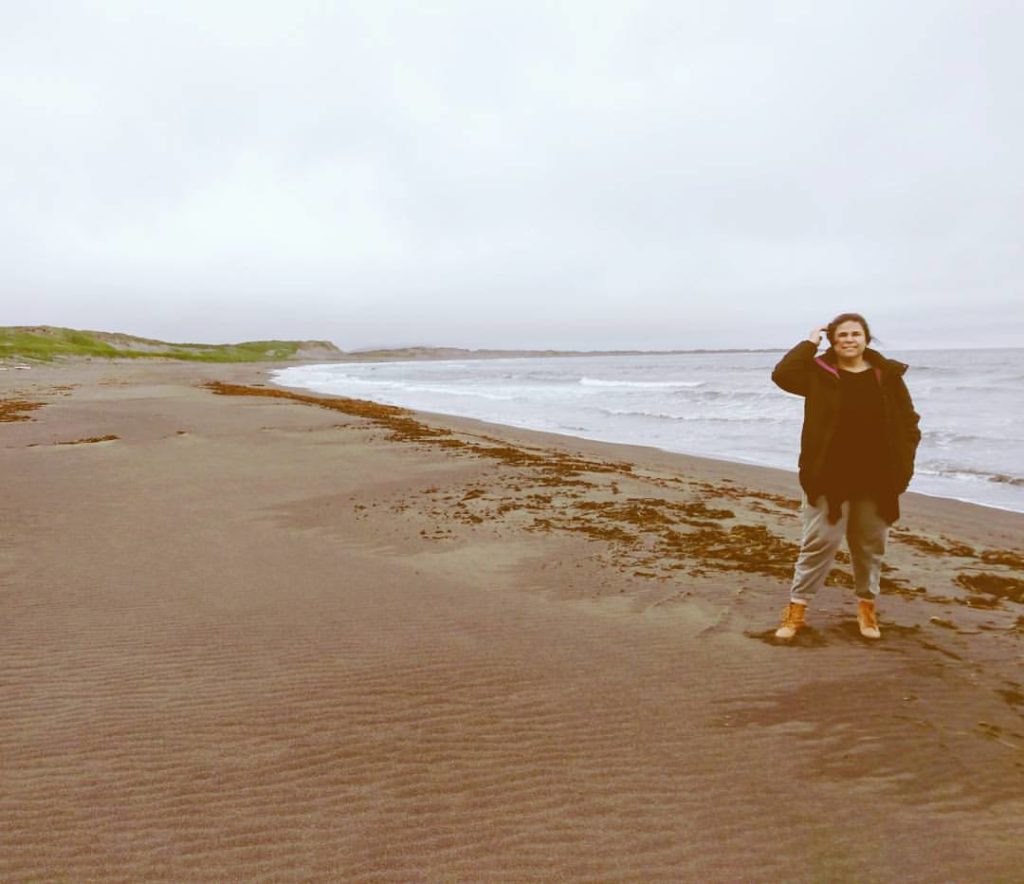 Aang! My name is Talia London and I grew up as a guest on Lummi territory, a Native nation in the Pacific Northwest. I am a descendent of the Aleut village of Nikolski. Currently I am a graduate student pursuing a PhD in Social Justice Education at the University of Massachusetts Amherst. My experiences as a Native child going to a predominantly white school have driven my goal to become a teacher educator, and develop a teacher education program that adequately supports Native elementary and secondary teachers.
Aang! My name is Talia London and I grew up as a guest on Lummi territory, a Native nation in the Pacific Northwest. I am a descendent of the Aleut village of Nikolski. Currently I am a graduate student pursuing a PhD in Social Justice Education at the University of Massachusetts Amherst. My experiences as a Native child going to a predominantly white school have driven my goal to become a teacher educator, and develop a teacher education program that adequately supports Native elementary and secondary teachers.
As an academic it is easy to forget to bring theory into practice, and so one of my newest goals as a PhD student is to learn real world application of the information I have learned in the “ivory tower.” In order to make this happen, I find ways to remain engaged with the multiple communities I belong to while carrying the skills I have acquired. Due to this, I was very excited when I was first introduced to Where Are Your Keys? (WAYK) during the fall 2016, at a gathering held by the Aleut Corporation for shareholders. I began to follow WAYK on social media, and one day I saw their call for interns. I decided immediately I would apply as this is one more way that I have been able to stay connected to and contribute to community. With this in mind I am very excited to visit St. Paul, an island that is very close to my own homeland Nikolski.
During our first day joining the program, Aquilina Lestenkof, Director of the Office of Cultural Affairs, shared with us a short story. She shared that the civic center (our language classroom) is located on the same piece of land as the old school building that she attended as a child. The Unangax̂ children were only allowed to speak English, and were punished for speaking Unangam Tunuu. She was excited and proud to point out that today the civic center (which is a newer building) is a space for Unangam Tunuu language learning. When Aquilina shared this story it reinforced my own personal academic goals that I mentioned above. Leeanne Simpson an Nishnaabeg scholar, shares the implications of such a goal in a few words on her blog, Land & Reconciliation, Having the Right conversation,
The idea of my arms embracing my grandchildren, and their arms embracing their grandchildren is communicated in the Nishnaabe word kobade. According to elder Edna Manitowabi, kobade is a word we use to refer to our great grandparents and our great-grandchildren. It means a link in a chain – a link in the chain between generations, between nations, between states of being, between individuals. I am a link in a chain. We are all links in a chain.
Although Simpson is discussing relations between great grandparents and and grandchildren from a very specific First Nation in Canada, their history aligns closely with the history of colonization and Unangax̂ peoples. WAYK’s approach is unique to other programs, in that it encourages and requires relationship building to build fluency. You can think of it as maintaining a metal chain. A chain is considered a flexibly series of joined links. A chain is bound together, and relies on each link to be successful. This is similar to successful language learning in Native communities. A community is bound together and relies on more than a fluent speaker, or a child learner (two links). We need the entire chain of people with a variety of skills and knowledge. This is different from other language learning approaches, for example language learning apps. Like Simpson, I am excited to broaden my skills and responsibility as an academic by participating as a ‘link in a chain’ on St. Paul Island this summer. I would like to thank the St. Paul team for graciously welcoming us onto your homelands and allowing me to participate in this healing work.
Post authored by Talia.

